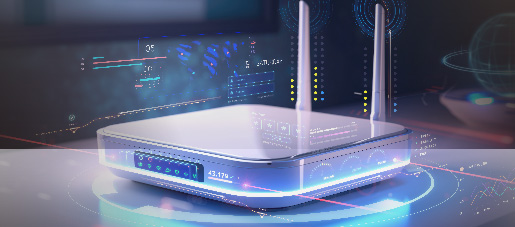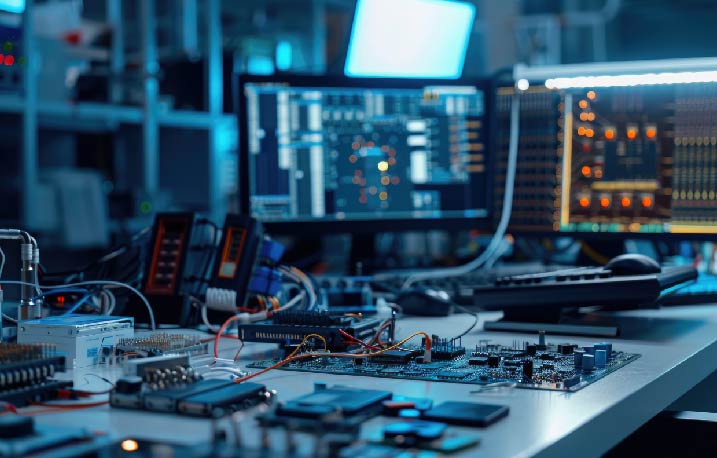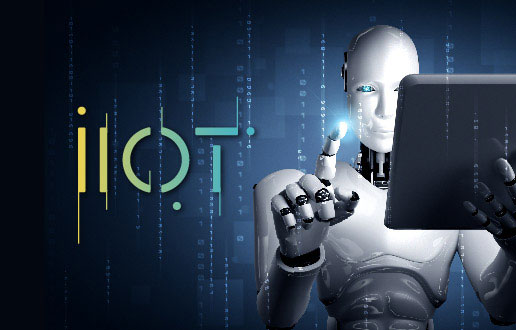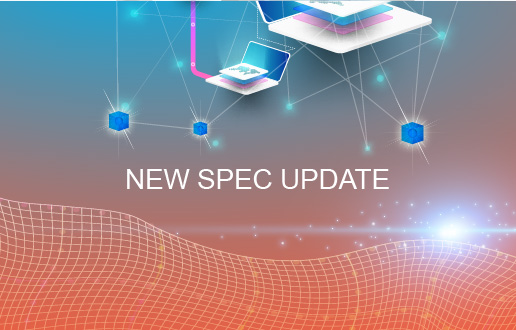The In-Vehicle Infotainment (IVI) system has evolved from a device that just plays music to a core component in modern vehicles. Other than playing music, the IVI system also provides navigation, communications, air conditioning, power configuration, fuel consumption performance, remaining driving range, energy-saving suggestions, and many other functionalities for the driver.
The driver’s seat has gradually transformed into an extra living space outside of your home and workplace. In 2014, Apple launched Apple CarPlay, a car interface that allows drivers to use iPhone applications and other IVI functions such as Apple Maps, Siri, Apple Music, iMessage, and make phone calls. CarPlay also supports third-party applications such as Google Maps, Waze, Spotify, WhatsApp, Audible, Tidal, Amazon Music, TuneIn Radio, CBS Radio, and more. Thanks to the system integration with Apple CarPlay, drivers can utilize a wide range of features in-car screen, including answering phone calls, exchanging messages, playing music, and utilizing GPS navigation.
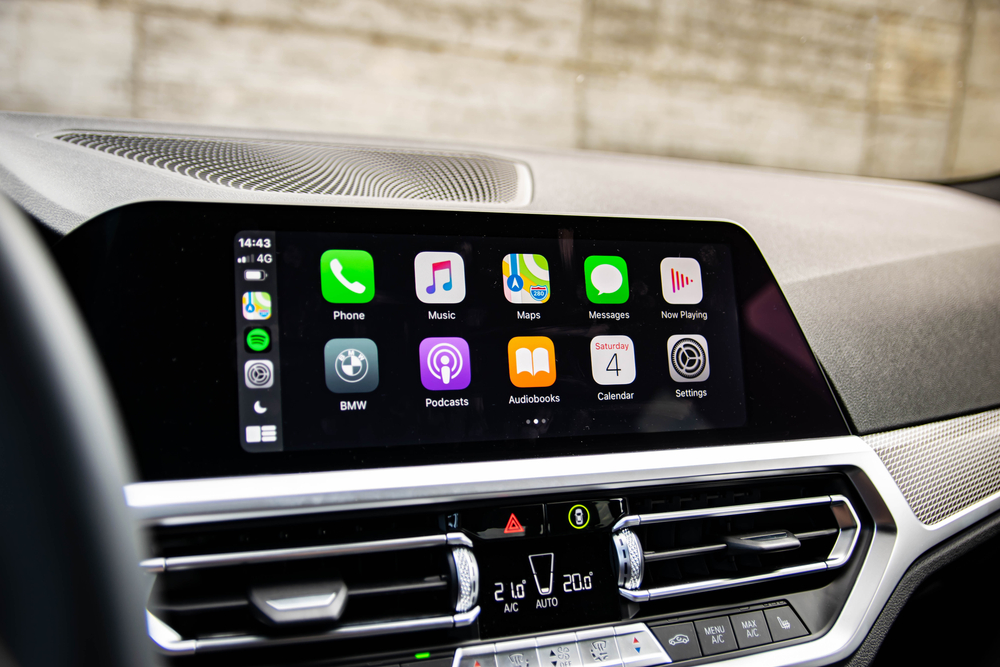
CarPlay and IVI are complementary to each other. IVI provides a platform for CarPlay to function, allowing applications to be seamlessly integrated into the car display. CarPlay creates more value for the IVI system, making user interactions easier and more convenient with the vehicle. Because of this, more car manufacturers are now including Apple CarPay as a basic necessity for new cars.
Currently, more than 80% of new vehicle models worldwide support Apple CarPlay. Various popular brands such as Audi, BMW, Ford, Honda, Hyundai, and others, all include CarPlay as basic or optional equipment. During the 2022 WWDC conference, Apple claimed that 79% of US buyers will only consider buying new cars that support Apple CarPlay. They also stated that among the cars sold in the US, CarPlay covers 98% of them. It is without doubt that CarPlay has become a must-have functionality when purchasing a new vehicle. In April 2023, it was confirmed that more than 800 car models in the US now support Apple CarPlay.
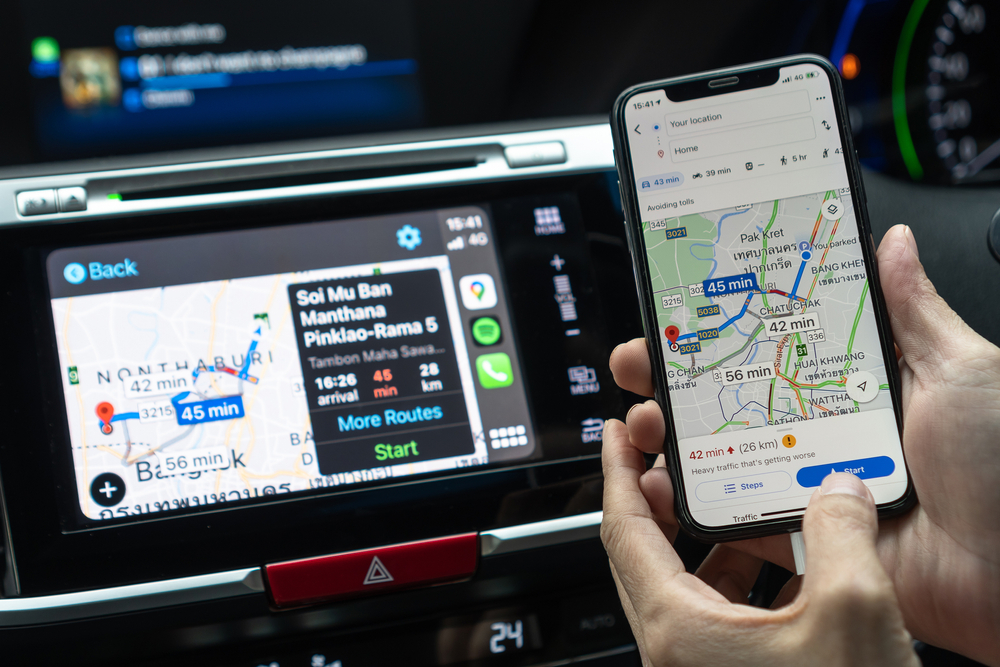
So why has Apple CarPlay received so much attention and praise? The reason for this is because CarPlay has a simple, convenient, easy-to-use user interface. iPhone functions are integrated into the car display and users can control the interface by touching the screen or using Siri. This smartphone-like user experience makes it incredibly easy for users to learn how to use it.
Since iOS 12 was launched, Apple CarPlay has started supporting third-party applications, allowing users more freedom with their favorite apps. In terms of safety, Apple has designed an operating interface that integrates smartphone functions into the car display, allowing the driver to conveniently use it and not be distracted. This means the driver don’t have to frequently divert their attention while driving, reducing potential distractions and thereby increasing road safety.
Automotive manufacturers who want to use CarPlay on their vehicles must be certified by Apple. However, even for certified vehicles, users may still encounter issues during use. This can result in negative user reviews and hurt their brand image.
To certify vehicles, you would have to go through countless tests and verification items that need professionals from multiple fields. It’s very difficult for automotive manufacturers to complete the verification testing on their own. This is why there are authorized third-party testing companies like Allion Labs that assist manufacturers with testing and consulting services for IVI systems and products.
The following list has been made by Allion Labs after testing IVI products with CarPlay that contain common issues that CarPlay might run into for the average user. It’s crucial to understand that these issues still may occur after Apple has given their certification.
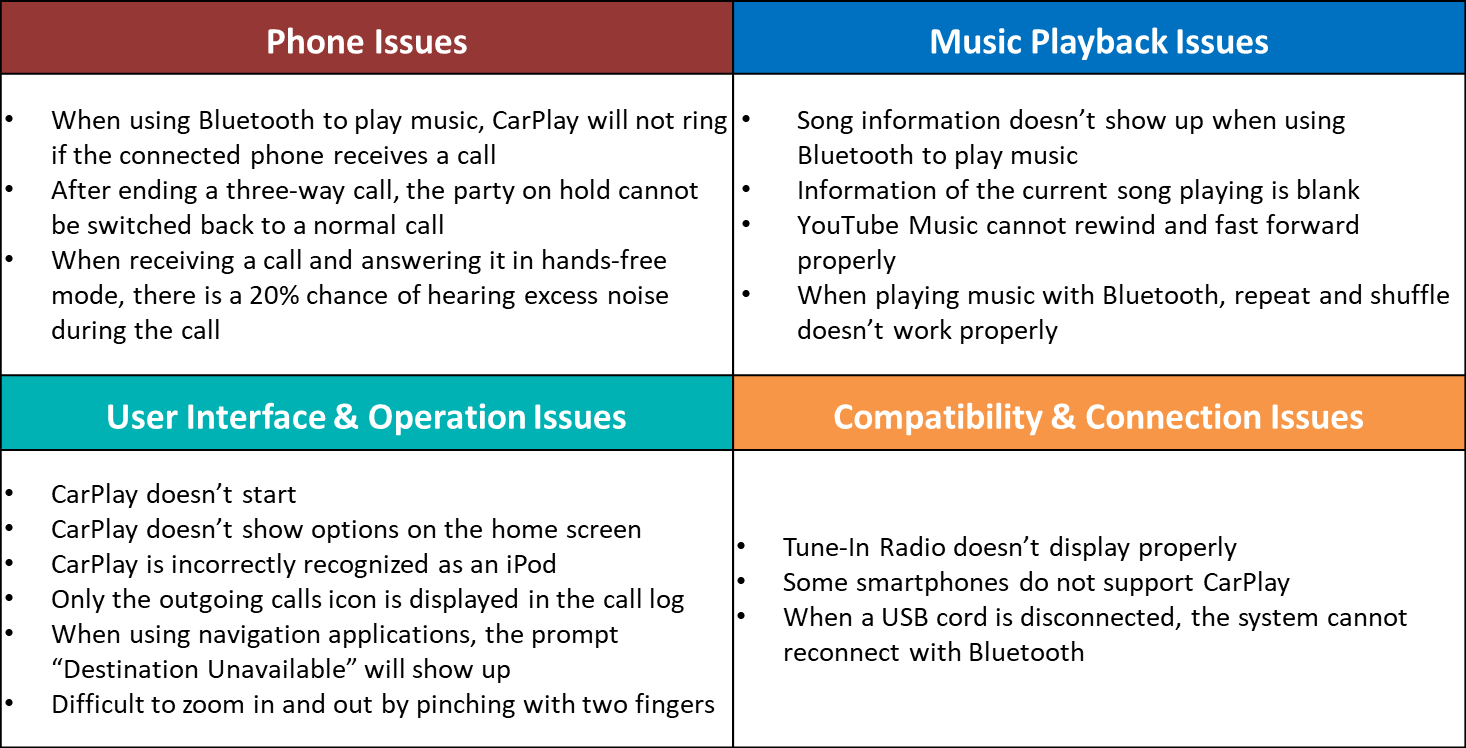
Conducting proper tests and verifications before mass production is crucial for car manufacturers. To ensure CarPlay continues to provide reliable performance during use, Allion Labs is committed to helping automotive manufacturers conduct professional testing and consulting services for IVI-related products. We can help our clients identify potential issues and provide them with suggestions for improvements.
To thoroughly evaluate performance with CarPlay and detect potential issues as fast as possible, Allion recommends automotive manufacturers and CarPlay developers perform the following tests before launching their products. These tests are expected to contribute to improved product quality and enhance the perception of the automotive brand by users.
- Phone Call Test
- Music Playback Test
- CarPlay Startup and Connection Test
- CarPlay Applications Compatibility Test
- CarPlay User Interface and Operation Test
- Mobile Operating System Compatibility Test
In the near future, CarPlay will most likely continue to play a crucial part in IVI systems. As a product testing laboratory with decades of experience, Allion will actively assist clients in following the latest trends in the industry and provide support for CarPlay development.
Allion has professional experience in IVI system testing, Bluetooth connection testing, CarPlay testing, and more. We have a complete range of testing equipment and various types of automated testing technology. To meet the needs of our clients, we also provide customized testing solutions and global support services.
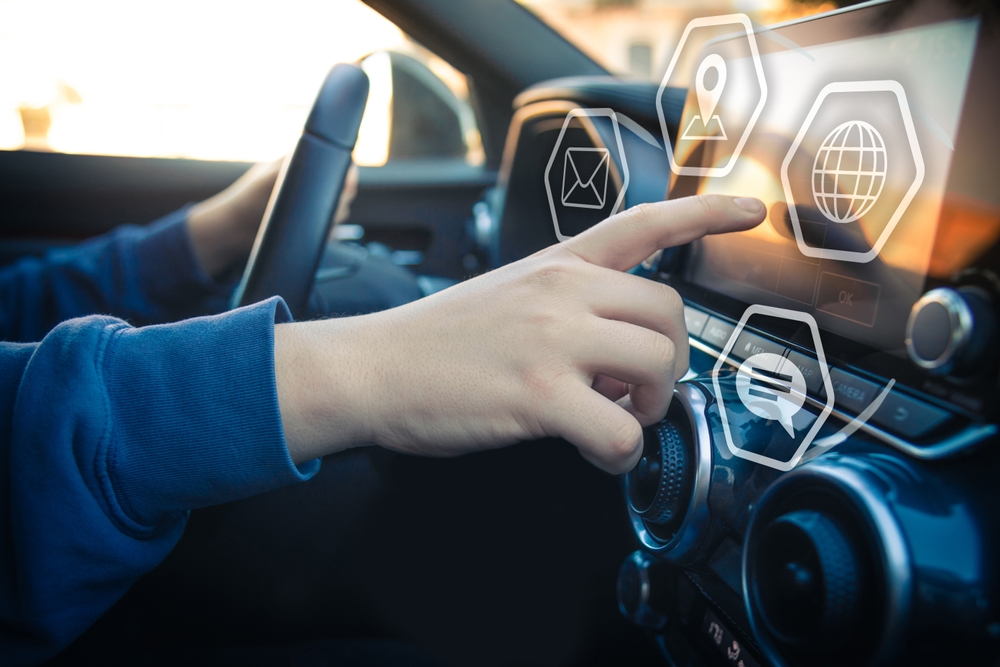
As the Internet of Vehicles (IoV) is becoming more popular, Allion has continued to conduct research related to the automotive industry. Other than providing Apple CarPlay verification testing services, we can also perform standard verification services for vehicles such as Wi-Fi, Bluetooth®, USB, and more. Software and hardware compatibility testing is also a service provided for our clients. Allion can meet all of your verification testing needs. We will continue to research and develop in-vehicle testing technologies such as CAN Bus, Automotive Ethernet, and Vehicle-to-Everything (V2X) to ensure our clients are caught up with the latest trends in the industry.















